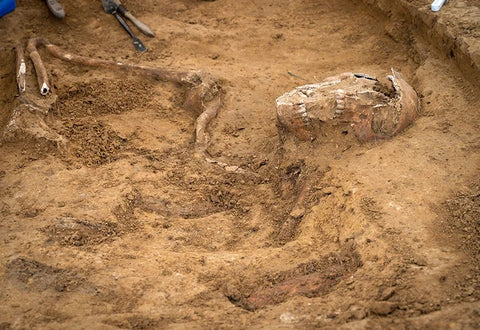
Rare Find of Skeletal Remains Discovered at Waterloo Battlefield
Tens of thousands of men perished on the hallowed plains of Waterloo, Belgium, the site of Napoleon Bonaparte’s downfall and a dramatic coda to the decades- long Napoleonic Wars.
Now, archaeologist say they have discovered “incredibly rare” skeletal remains of soldiers — most likely those of the British — at Mont-Saint-Jean farm, the site of the Duke of Wellington's main field hospital during the battle.
Despite its notoriety and the large swath of land the fighting covered, the battlefield had never been excavated by archaeologists until 2019, some 200 years after the last shots rang out over the grounds.
The dig paused due to the coronavirus but resumed once again this year. Teams found the remains of three amputated human limbs and horses during their excavations. While an estimated 20,000 men died on June 18, 1815.
According to writer Ellen Hampton, the surrounding area was famously looted after the battle, and the lack of human remains found there has led archaeologists to believe the bones in mass graves were dug up and ground up for fertilizer in the 19th century.
"I've been a battlefield archaeologist for 20 years and have never seen anything like it," Tony Pollard, director of the Centre for Battlefield Archaeology at the University of Glasgow, told the BBC.
Defeated by British-led coalition under the Duke of Wellington, the one-day battle of Waterloo ranks as the third bloodiest of Napoleon’s campaigns, it also marked his last.
"We won't get any closer to the harsh reality of Waterloo than this," one of the project's directors told the BBC.
